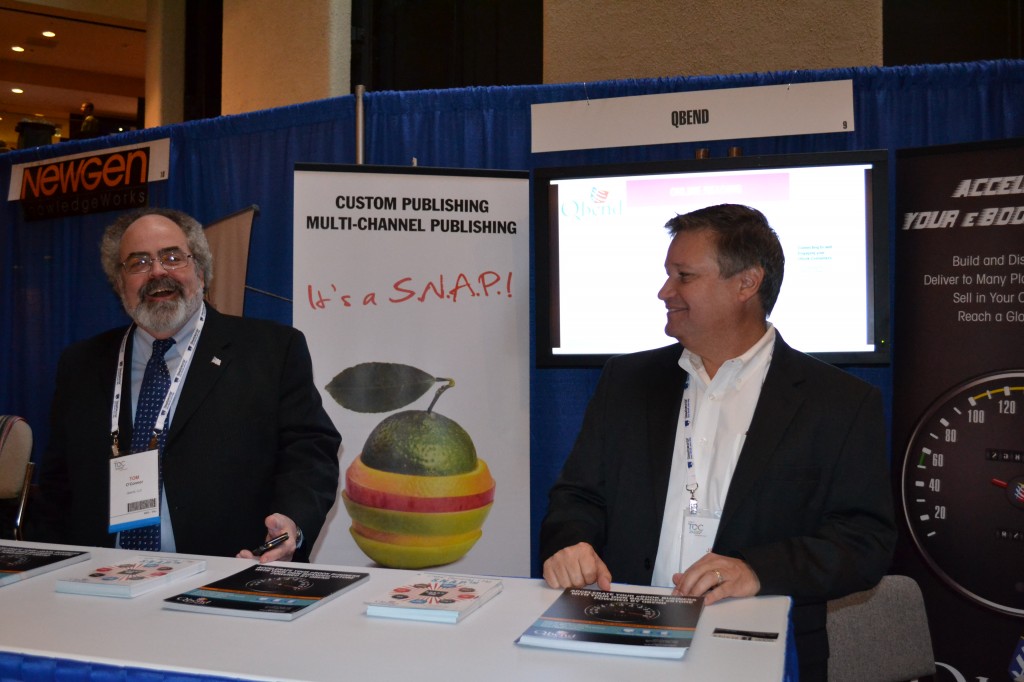
One of the concerns discussed at this morning’s keynote addresses at the Tools of Change conference in New York was the concept of the “walled garden” of online book retailers. This closed system of ebook selling doesn’t foster book discovery and can lead to niche specific bookselling while isolating potential readers who are trapped by the retail platform associated with the e-reader device or app they choose.
QBend, which launched about three years ago, has found a way to enable the branding of authors and publishers rather than retailers, while still reaching out to customers with a device-agnostic capability. While ebook distribution platforms are not very new or spare, QBend works instead to create a branded ebook platform for both publishers and authors, powering their ebook stores.
One option that QBend stands to capitalize on is the ability of publishers to sell only specific chapters of a book. This can be used for enticement or giveaways, but can also be used in academic publishing arenas where only specific chapters are needed, eliminating the expense of purchasing of full texts while still allowing publishers to profit.
Kaushik Sampath, Chief Operating Officer of QBend, spoke with GoodEReader at the event about how operations like this one benefit both the publisher and the reader, from a discovery standpoint and a financial one.
“QBend provides a platform for publishers to go directly to their consumers. A lot of publishers sell through Amazon, Barnes and Noble, Apple, and other retailers, but what they’re missing out on is the interaction with their readers. They don’t even know who buys their books, they only see the sales figures. QBend helps them interact with their readers to see what they like and what they want more of.”
This customer-driven feedback to fuel creation of content is not new, but it hasn’t been done yet on a large enough scale. With options like QBend and Amazon’s Kindle Serials, in which authors can sell a portion of their work and continue writing while engaging in reader interaction in order to shape the outcome of the book, books can become even more reader-centric experiences.
Mercy Pilkington is a Senior Editor for Good e-Reader. She is also the CEO and founder of a hybrid publishing and consulting company.
